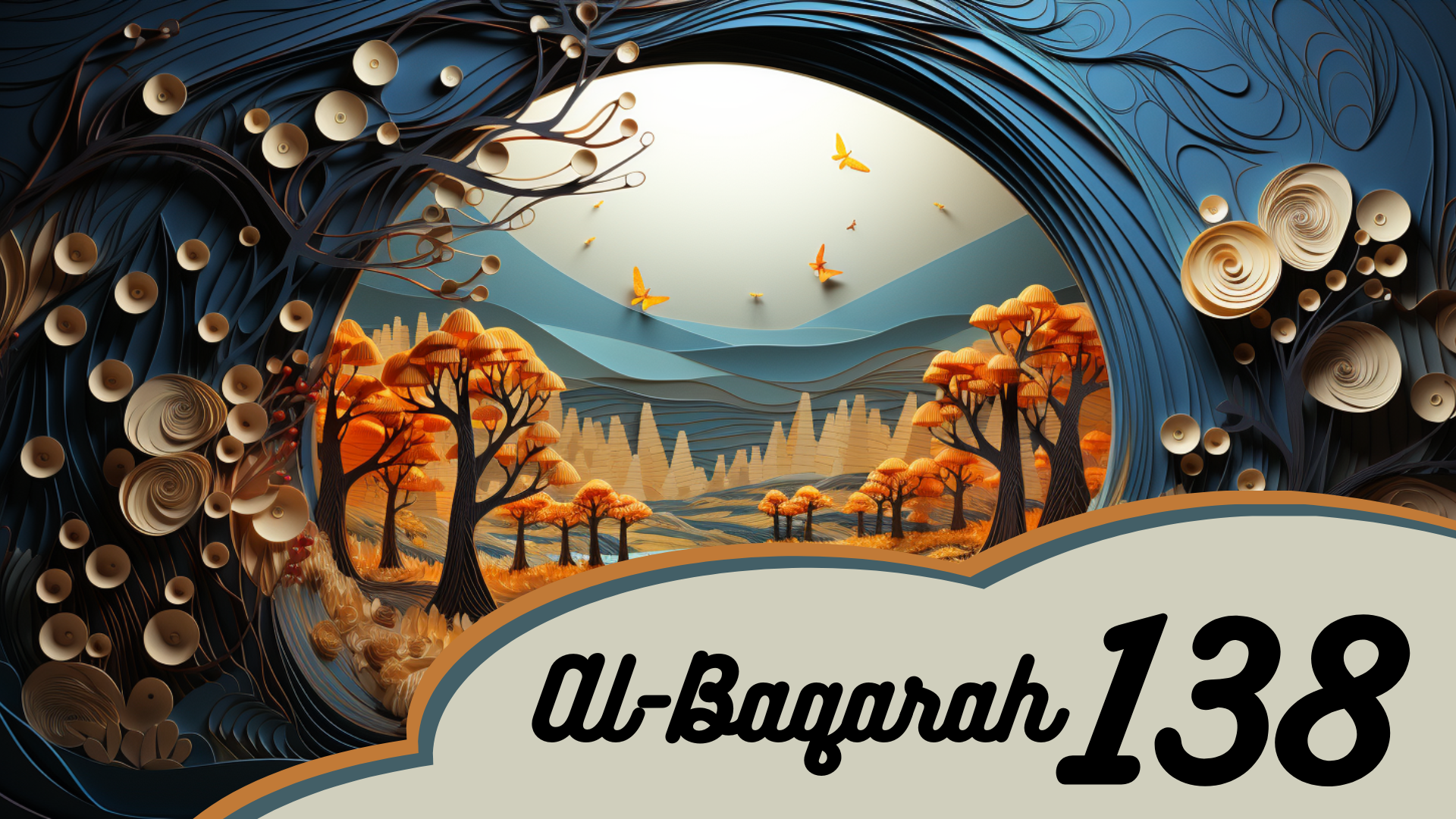In this insightful article, we explore the profound meaning behind Verse 138 of Surah Al-Baqarah. Delving into the core message of the verse, we analyze its significance and application in the daily lives of Muslims. Providing a comprehensive explanation of the verse, we unravel the deeper spiritual truths contained within, shedding light on its powerful lessons and timeless wisdom. Join us as we embark on a journey to uncover the profound meaning behind Verse 138 of Surah Al-Baqarah and its relevance in shaping the lives of believers.
Meaning of Verse 138 of Surah Al-Baqarah
Introduction to Surah Al-Baqarah
Surah Al-Baqarah is the second chapter of the Quran and is the longest chapter with a total of 286 verses. It was revealed in Medina and covers various aspects of life, including religious, social, economic, and political matters. The Surah addresses the Muslim community and provides guidance on how to live a righteous life in accordance with Allah’s teachings.
Background of Verse 138
Verse 138 of Surah Al-Baqarah is a part of a larger passage that addresses the importance of sincerity in one’s faith and the way a believer should interact with people of other religions. This verse specifically focuses on the challenges faced by Muslims in dealing with the criticism and ridicule from the non-believers regarding their faith and practices.
Literal Translation
The literal translation of Verse 138 of Surah Al-Baqarah is as follows: “Say, ‘Our faith is in Allah and that which has been revealed to us and that which has been revealed to Abraham and Ishmael and Isaac and Jacob and the Descendants and that which was given to Moses and Jesus and that which was given to the prophets from their Lord. We make no distinction between any of them, and we are Muslims [submitting] to Him.'”
Contextual Analysis
This verse is part of a larger passage in Surah Al-Baqarah where Allah instructs the Muslims on how to respond to the criticisms of the non-believers and maintain their faith. The verse emphasizes the unity and inclusivity of Islam by stating that Muslims believe in all the revealed scriptures and messengers, making no distinction between them.
Interpretation and Explanation
Verse 138 highlights the fundamental belief of Muslims in the unity of God’s message and the equality of all His prophets. It emphasizes that Muslims believe in all the divine revelations bestowed upon different prophets throughout history, including Abraham, Ishmael, Isaac, Jacob, Moses, and Jesus. By acknowledging the revelations and prophethood of these messengers, Muslims affirm the continuity and universality of the divine message.
This verse also underlines the concept of Tawhid, which is the Islamic belief in the oneness of God. Muslims believe that all the prophets, including Muhammad, were sent by Allah with the same essential message of monotheism and submission to His will. By making no distinction between the prophets and their scriptures, Muslims affirm their faith in the unity of God’s guidance throughout history.
Significance in the Life of a Muslim
Verse 138 holds significant importance in the life of a Muslim as it emphasizes the need for unity, inclusivity, and respect for the diversity of religious traditions. It reaffirms the belief that being a Muslim does not entail rejecting or belittling the teachings of other prophets and scriptures. Instead, it encourages Muslims to recognize and honor the divine wisdom in all revealed messages, thus fostering harmony and mutual understanding among people of different faiths.
Furthermore, this verse serves as a reminder to Muslims that they are part of a larger global community of believers. It encourages them to stand firm in their faith and values, even in the face of criticism and ridicule. By embracing the diversity of religious expressions, Muslims can engage in meaningful dialogue and contribute to building a more inclusive and tolerant society.
Application in Daily Life
The application of Verse 138 in the daily life of a Muslim is multifaceted. Firstly, it reminds Muslims to be open-minded and respectful towards people of other religions, recognizing the commonalities rather than focusing on differences. By fostering dialogue and understanding, Muslims can promote tolerance and peaceful coexistence in their communities.
Secondly, Verse 138 encourages Muslims to approach the study of other religious scriptures with an open heart and a critical mind. By gaining knowledge about different faith traditions, Muslims can deepen their own understanding of Islam and strengthen their conviction in its universal message of peace and righteousness.
Lastly, this verse serves as a source of comfort for Muslims facing challenges to their faith. It reminds them that they are part of a larger spiritual lineage that stretches back to the time of Abraham. By drawing inspiration from the unwavering faith of the previous prophets and their followers, Muslims can find strength and resilience to uphold their own beliefs amidst adversity.
Relation to Other Verses
Verse 138 of Surah Al-Baqarah is closely related to the broader theme of unity and inclusivity found throughout the Quran. Several other verses emphasize the importance of recognizing the diversity of Allah’s creation and the shared core values among people of different faiths. For example, Verse 13 of Surah Al-Hujurat states, “O mankind, indeed We have created you from male and female and made you peoples and tribes that you may know one another. Indeed, the most noble of you in the sight of Allah is the most righteous of you.”
Additionally, Verse 45 of Surah Al-Kahf highlights the distinction between the outward appearances of different faith traditions and the true essence of belief in God, stating, “And present to them the example of the life of this world, [its being] like rain which We send down from the sky, and the vegetation of the earth mingles with it and [then] it becomes dry remnants, scattered by the winds. And Allah is ever, over all things, Perfect in Ability.”
Scholarly Opinions
Scholars have interpreted Verse 138 of Surah Al-Baqarah in various ways, but there is a general consensus on its key messages. Many scholars emphasize the importance of recognizing the shared roots of monotheistic religions and promoting interfaith dialogue based on mutual respect and understanding.
Some scholars also highlight the verse’s relevance to the historical context of the early Muslim community. They outline the challenges faced by the Muslims in Medina, where they interacted with Jewish and Christian communities. They argue that Verse 138 not only instructed the Muslims to maintain their own faith but also encouraged them to build positive relationships with people of other religions.
Conclusion
Verse 138 of Surah Al-Baqarah holds significant meaning for Muslims in terms of unity, inclusivity, and respect for all religions. It highlights the belief in the unity of God’s message throughout history and emphasizes the importance of recognizing the divine wisdom in all revealed scriptures.
The verse encourages Muslims to engage in dialogue and understanding with people of other faiths, fostering tolerance, and peaceful coexistence. It reminds Muslims of the shared core values among all believers and strengthens their resolve to uphold their faith in the face of challenges. By embodying the principles outlined in Verse 138, Muslims can contribute to a more harmonious and inclusive society, rooted in the principles of love, compassion, and mutual respect.




